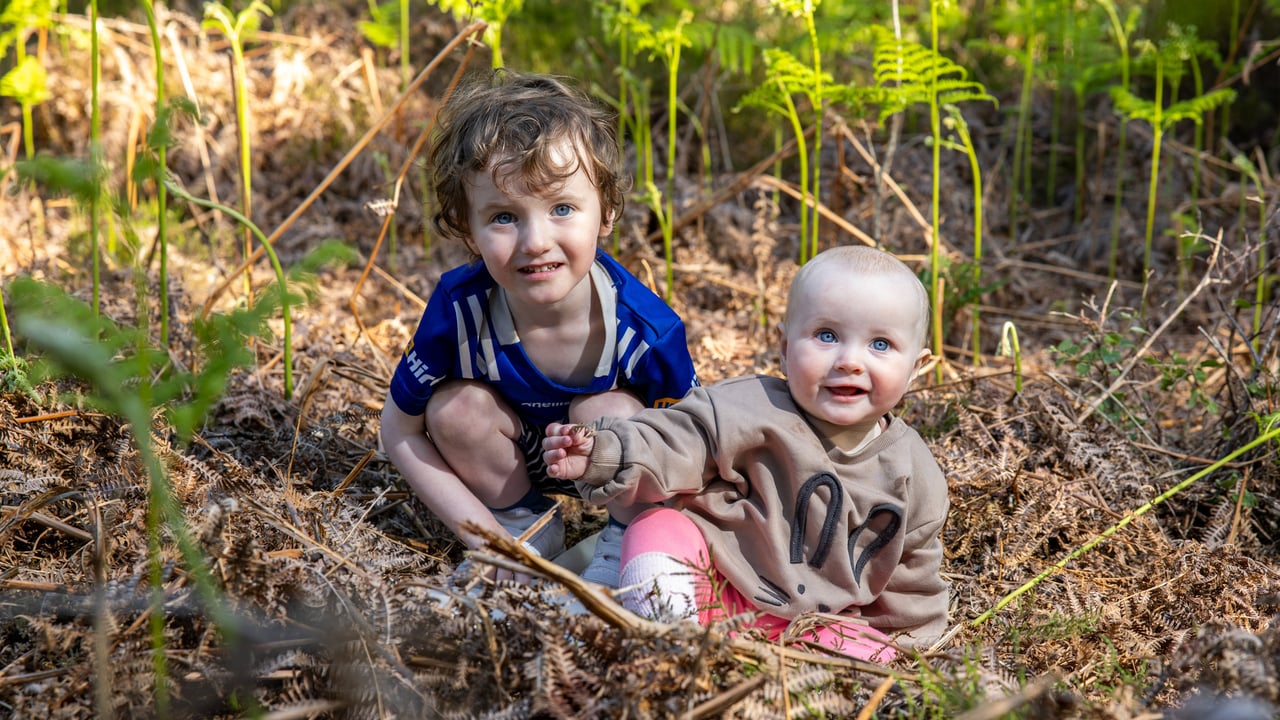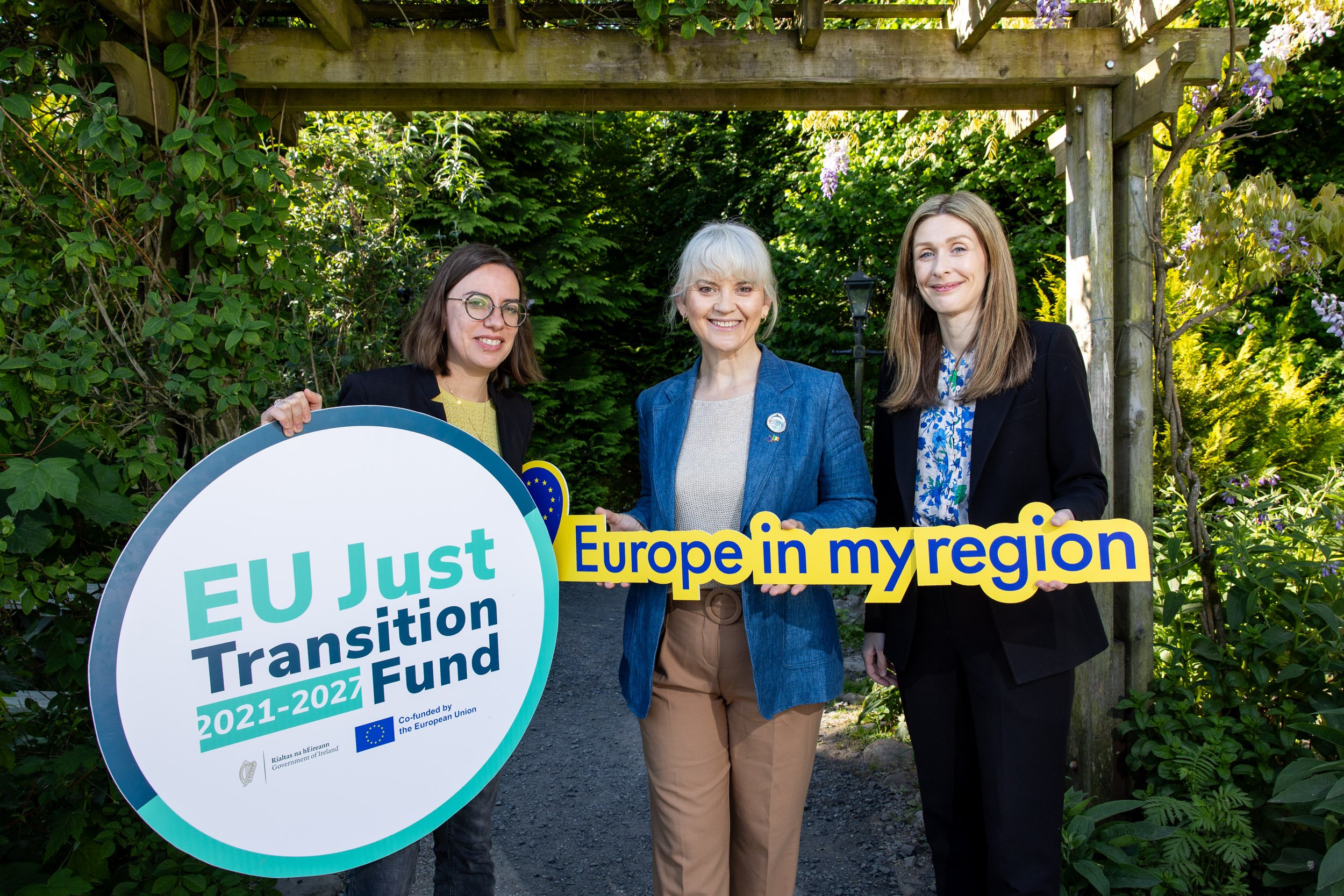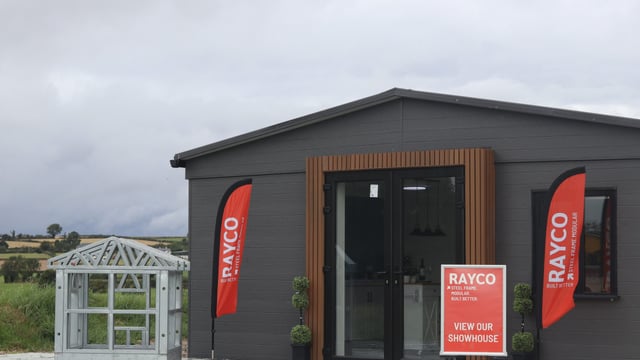Research: 'Strong' public support for wetland restoration
New research unveiled today (Thursday, May 22) at the 'Tóchar: A Path from the Past, A Future for Wetlands' conference reveals a strong public interest in wetlands.
The RED C research, commissioned by the Tóchar Midlands Wetlands Restoration Project, provides insights into Irish attitudes toward wetlands, restoration benefits, and the perceived impact on rural livelihoods.
The findings were presented during a lively day of discussions and community engagement at the conference, where the opening address from John Feehan explored the role of ecological processes for the future of wetlands.
The event brought together policymakers, ecologists, landowners, contractors, and local voices to explore the path ahead for wetlands in the midlands.
Held in Abbeyleix, Co. Laois, the event opened with a ‘Wake Up to the Bog’ walk and featured keynote addresses from representatives of the European Commission and the Eastern and Midland Regional Assembly (EMRA), National Parks and Wildlife Service (NPWS), Tóchar Project representatives and a range of community voices such as Abbeyleix Bog Project, Women in Nature Restoration and the Tóchar Fens Restoration project.
Welcoming the research, Minister for Housing, Local Government and Heritage James Browne said: “Through the Tóchar Project, the National Parks and Wildlife Service is restoring vital wetlands not only to protect biodiversity, but also to ensure that communities who have long been dependent on peatlands are part of a fair and inclusive transition.
"I am delighted that the NPWS is supporting initiatives like Tóchar that combine social equity with environmental stewardship.
"The research being launched today highlights the deep connection Irish people feel to our wetlands and underscores the public’s growing support for nature-based solutions to climate and biodiversity challenges.
"We need to ensure that meeting these challenges delivers climate action benefits while preserving livelihoods and our heritage," the minister added.
Speaking about the research, Minister of State for nature, heritage and biodiversity, Christopher O’Sullivan added: “The restoration of Ireland’s wetlands is a vital step in protecting our natural heritage and tackling climate change.
"These ecosystems are at the heart of our biodiversity and play a crucial role in flood management, carbon storage, and sustaining rural communities.
"Through the Tóchar Project, we are not just restoring landscapes, we are strengthening the connection between people and nature.
"This initiative ensures that wetland restoration is carried out in a way that benefits both the environment and the communities who have relied on these lands for generations."
The junior minister said the government is committed to working with all stakeholders to create a sustainable future where conservation and rural livelihoods can thrive side by side.
The research was commissioned to better understand how people across Ireland perceive wetlands and their restoration and this was a key topic of discussion throughout the event.
The findings reinforced many of the themes raised during panel discussions and storytelling sessions, such as 'Stories from the Community' and 'The Irish Perspective: Reflections on the Past and a Look to the Future', where local peat contractors, landowners, and ecologists shared their lived experiences and aspirations for the transition.
The project group has said that it is clear that while there is strong support for nature-based solutions like wetland restoration, the concerns of rural communities whose lives and traditions are closely tied to these landscapes need to be acknowledged.
Key research findings include:
- 61% of Irish adults have visited a wetland area, with this number rising to nearly 70% in the EU Just Transition Territory counties;
- Nature restoration (72%), flood mitigation (57%), and carbon storage (50%) rank as the top perceived benefits of wetland restoration;
- While many support wetland restoration, 49% of respondents express concern about its impact, particularly on traditional rural livelihoods;
- One in three Irish adults have heard of wetland restoration projects, but there is a need for better communication and community engagement. Awareness is significantly higher in the EU Just Transition Territory counties.
The Tóchar Project, a three-year initiative managed by the NPWS and co-funded by the Government of Ireland and the European Union through the EU Just Transition Fund, is dedicated to restoring vital landscapes across the midlands.
Ireland’s wetlands play a crucial role in biodiversity conservation, carbon storage, and climate resilience. However, many of these fragile ecosystems have been degraded over time, according to Tóchar.
The project is focusing on restoring degraded wetlands in Kildare, Galway, Roscommon, Laois, Longford, Offaly, Tipperary, and Westmeath, working closely with local communities to ensure a just transition.
Tóchar project manager, Shirley Clerkin stressed the importance of collaboration: "The research shows that wetland restoration is about more than just conservation; it’s about people and their ongoing relationship with their environment.
"The survey results demonstrate an understanding of wetland ecosystem benefits but also show where we need to work together to enhance and build capacity for wetland restoration in the midlands.
"By working with communities, landowners, and peat contractors we can create a legacy of sustainable living, climate resilience, and biodiversity protection that benefits everyone."
The event closed with a ‘Rejuvenation Bog Walk’, allowing attendees to experience first-hand the landscapes that are the focus of Ireland’s wetland restoration movement.






